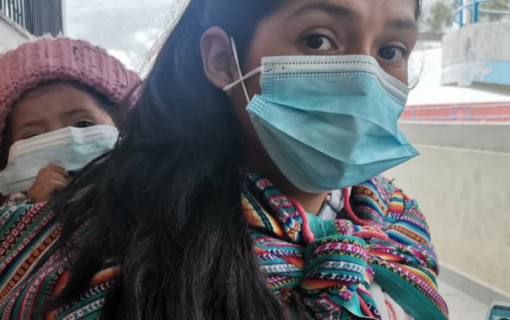Political and Economic Transition in Guinea-Bissau: A Preliminary Assessment of the Process to Implement Free Elections
EXECUTIVE SUMMARY
The Government of Guinea-Bissau has launched a process of transition from a one party state to a multiparty democratic system. The President has designated 1991 as the "Year of Democracy." Guinea-Bissau's leadership considers this transition process essential to the continuation of sweeping reforms now underway which will privatize its socialist modeled economy. The Government requested assistance from the U.S. Agency for International Development (USAID) for information and technical help to facilitate the transition. USAID referred this request to the International Foundation for Electoral Systems (IFES), requesting an IFES Pre-Election Assessment.
IFES sent a consulting team to Guinea-Bissau for a twelve-day Pre-Election Assessment mission. Its objectives included an in-depth assessment of Guinea-Bissau's electoral system, progress of the democratic transition, the impediments to the transition, - and the level of commitment of the Government, the ruling party and opposition groups to conducting multiparty elections. Officials from the Department of State and AID in Washington, in briefing the IFES team, gave this last matter particular attention and expressed conflicting observations regarding the demonstrated enthusiasm of the Guineans.
Upon arrival in Bissau, the team met with U.S. Embassy and USAID officials, as well as members of the Constitutional Revision Commission. It soon became apparent that various misgivings about the speed of the transition were justified. The Boletim Oficial (government publication of recent legislation) had not been published in months. No opposition parties had been legalized. It was initially difficult for IFES to obtain copies of the Constitution and electoral law. Little if any planning for the administration of the electoral law was evident. Additionally, the fact that each member of the Constitutional Revision Commission occupied one or more full-time positions in addition to membership on the Commission raised questions about the actual priority placed on the conduct of multiparty elections. However, further meetings suggested a contrary, more optimistic situation. The team heard individual and collective expressions of vontade (commitment and determination) from nearly everyone it met. The team was also frequently asked to provide suggestions not only for fine-tuning the current electoral process, but for the types of processes in use internationally would best suit Guinea-Bissau, how those systems could be described in an electoral code, and how such systems would be reflected in the Constitution. The observed lack of commitment and decelerated progress masked a lack of substantive research and experience, resulting in an inability to make informed fundamental decisions regarding structure of government, type of election system, even the sequence of elections. Following these initial meetings, IFES, USAID and the Government of Guinea-Bissau were able to revise and clarify the team's scope of work. Rather than detailing the technicalities of Guinea-Bissau's election law and logistics requirements for the next election, this report chronologizes recent events leading to the current state of the transition process, outlines the immediate steps to be taken, and clarifies the general prospects (as well as necessary conditions) for democracy.
The IFES team noted an overall enthusiasm for the liberalization of Guinea-Bissau's political system as a complement to the liberalization of the economy. The Government, the ruling party and the opposition groups all expressed the belief that a free-market economy was incompatible with a command political system. Each group was confident of winning an election, yet hesitated to define the political parameters. The lack of fundamental experience, coupled with an absence of dialogue between groups responsible for and involved in Guinea-Bissau's transition to democracy, are two salient factors affecting the rate of forward movement of that transition.
The need for extensive dialogue extends to relations between the Government, the opposition groups and the public. The IFES team recognizes that prior to the official recognition of the individual parties, such a dialogue was difficult if not possible, but with the registration of the parties it is essential. The current state of Guinea-Bissau's physical, institutional and telecommunications infrastructures complicates the swift promulgation of policy changes. As a result, new policy decisions, discussed and accepted in Bissau, are neglected or rejected in the interior regions by officials who have not received the information clearly or quickly. A civic education program will not only have to instruct voters on the logistical aspects of the elections, but must start with the Government systematically and consistently increasing public awareness of every significant development in the transition. These messages should be targeted for the largest population possible, giving special attention to the security forces, rural residents and others without easy access to information.
The Government of Guinea-Bissau is clearly aware of the link between economic and political openness and positive international financial relations. It will rely on the interest and support of the international community throughout its democratization process. The IFES team, while unable to give exact figures for the cost of an election in Guinea Bissau, offers guidelines and preliminary cost estimates for commodities and basic necessities as a starting point for dialogue between the Government and the international community present in Bissau.
Finally, the report identifies and makes recommendations regarding key decisions that are critical to the advancement of the democratization process in Bissau. The principal recommendation is that the Government identify, with international assistance, persons who can provide continuous information and training in various areas such as electoral systems, Constitutional and electoral code development, and daily administration of the code. The team cannot emphasize these needs too strongly.
The IFES team was favorably impressed by the willingness of all interested individuals to become familiar with new policies, new administrative structures and even new ways of making decisions. However, willingness alone will not guarantee sustained economic and political growth. Successful fulfillment of the Government of Guinea-Bissau's request for information and technical assistance requires a complementary international willingness to share information resources, technical skills and the financial burden of this country's democratization process.
Read the Full Report.









